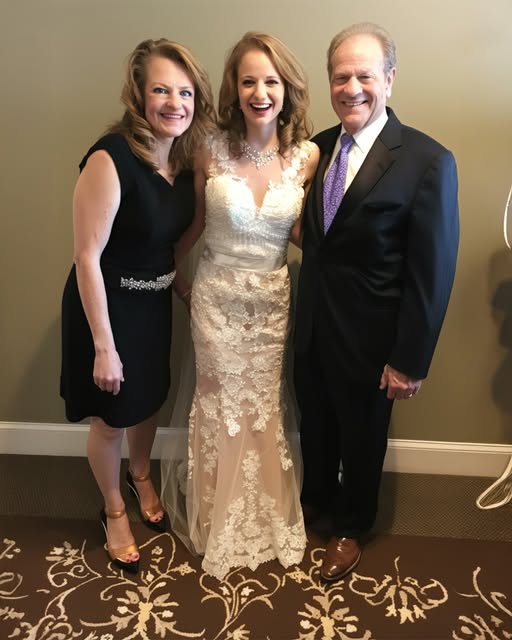
In a world that constantly demands more from us—more time, more energy, more attention—it’s easy to fall into the trap of saying “yes” to everything. Whether it’s agreeing to extra work at the office, attending social events we don’t really want to go to, or helping others at the expense of our own well-being, the pressure to please can quickly lead to burnout, stress, and resentment.
Learning to say “no” is an essential skill for protecting your mental health, fostering personal growth, and setting healthy boundaries. However, for many, saying “no” can feel uncomfortable or even guilt-inducing. We worry about disappointing others or feeling selfish. But the truth is, saying “no” can actually create more space for the things that truly matter, helping you lead a more balanced and fulfilling life.
In this article, we explore the importance of saying “no”, how it can benefit your mental health and personal growth, and how to do it without feeling guilty.
1. Saying No Creates Space for What Matters
When you say “yes” to everything, you risk overloading your schedule and diluting your energy. By learning to say “no”, you free up time and emotional bandwidth for the things that are truly important to you—whether it’s self-care, meaningful relationships, personal projects, or just the time to relax and recharge.
Why it works:
- Prioritizing your values: Saying “no” allows you to focus on what truly aligns with your goals, values, and needs. It helps you eliminate distractions and make room for activities that contribute to your growth and well-being.
- Reducing overwhelm: When your schedule is overcrowded, it’s hard to give anything your full attention. By saying “no” to less important commitments, you prevent yourself from becoming overwhelmed, helping you be more present and engaged in what you choose to focus on.
- Setting your own agenda: Instead of reacting to external pressures, you take control of your time and energy, making deliberate choices that support your long-term vision for your life.
How to get started:
- Take inventory of your current commitments and identify areas where you feel stretched too thin.
- Practice saying “no” in small situations first—like declining an invitation to an event you don’t really want to attend—and gradually build up to bigger decisions.
2. Saying No Protects Your Mental Health
Constantly saying “yes” to others can lead to mental and emotional exhaustion. Over time, this can contribute to feelings of resentment, burnout, anxiety, and even depression. When you say “no”, you assert your right to protect your well-being, reducing stress and maintaining emotional balance.
Why it works:
- Prevents burnout: Saying “yes” to every request or obligation leaves you with little time for self-care, which is crucial for mental health. Setting boundaries helps you avoid the exhaustion that comes from spreading yourself too thin.
- Reduces resentment: When you agree to things out of obligation, rather than desire, you may start to feel resentful of the time and energy you’re giving away. Learning to say “no” with confidence can prevent these feelings and help you maintain healthy, respectful relationships.
- Encourages self-compassion: Saying “no” is an act of self-care. It acknowledges that your needs are just as important as others’, and that taking care of yourself is not selfish, but necessary for your overall well-being.
How to get started:
- Tune in to your emotional and physical responses when someone asks you for something. If you feel stressed, overwhelmed, or uncomfortable, it’s a sign that it may be time to say “no”.
- Practice self-compassion: Remind yourself that your mental health and happiness matter, and that setting boundaries is a healthy, responsible choice.
3. Saying No Builds Confidence and Self-Respect
When you learn to say “no”, you’re also learning to stand up for yourself. This not only builds your confidence but also fosters a deeper sense of self-respect. By asserting your boundaries, you send the message to yourself—and others—that you value your time, energy, and well-being.
Why it works:
- Strengthens your sense of self: The ability to say “no” demonstrates that you are in touch with your priorities and have the self-awareness to know when something isn’t in alignment with your goals or needs.
- Enhances your relationships: Paradoxically, saying “no” can actually improve relationships. It encourages honest, respectful communication and helps you avoid overextending yourself, which in turn leads to healthier, more balanced connections with others.
- Encourages assertiveness: Saying “no” is a key element of assertiveness, which is the ability to express your thoughts, feelings, and needs clearly and confidently. It allows you to communicate your boundaries without feeling guilty or apologetic.
How to get started:
- Start by recognizing your own worth. Remind yourself that your time and energy are valuable, and that it’s okay to say “no” when something isn’t right for you.
- Practice assertive communication: Use clear, direct language when saying “no”, and avoid over-explaining or apologizing. For example, “I’m unable to commit to this right now” is a polite yet firm way to set a boundary.
4. Overcoming the Guilt of Saying No
For many, the most challenging part of saying “no” is dealing with the guilt that often accompanies it. We may worry about disappointing others, being perceived as selfish, or damaging relationships. However, it’s important to recognize that setting boundaries is not only healthy but necessary. Saying “no” does not mean you don’t care—it means you care enough about yourself to protect your well-being.
Why it works:
- Guilt is a learned response: The guilt we feel when saying “no” is often rooted in societal expectations and our desire to please others. Over time, as you practice setting boundaries, this guilt will lessen and you’ll begin to feel empowered in your decisions.
- Healthy boundaries promote healthy relationships: Setting clear, respectful boundaries actually strengthens relationships because it fosters mutual understanding and respect. It helps prevent resentment and encourages both parties to communicate openly about their needs.
- You can’t pour from an empty cup: Taking care of yourself first allows you to be more present and effective in helping others when you do choose to say “yes”. By saying “no” at times, you ensure that when you do give, it’s from a place of abundance rather than depletion.
How to get started:
- Practice self-reflection to examine where your guilt is coming from. Are you worried about letting others down, or are you simply uncomfortable with saying “no”? Understanding the root of your guilt can help you address it more effectively.
- Reframe “no” as a positive choice: Remind yourself that by saying “no”, you are prioritizing your mental health, well-being, and personal growth, which ultimately benefits everyone around you.
5. Saying No Enhances Personal Growth
Setting boundaries is a powerful way to support your own personal growth. By learning to say “no”, you give yourself permission to focus on your own development—whether it’s pursuing new goals, engaging in hobbies, or simply taking time to rest. This allows you to grow in ways that align with your authentic self, rather than being pulled in too many directions by external demands.
Why it works:
- Supports long-term goals: Saying “no” helps you protect your time and energy, allowing you to stay focused on long-term goals that require sustained effort and attention.
- Creates space for creativity and self-discovery: When you stop overcommitting, you open up space to explore new interests, engage in self-reflection, and develop new skills that are important for your personal growth.
- Encourages balance: Healthy boundaries allow you to create a balanced life where you can pursue both your personal and professional growth, without feeling overwhelmed or burnt out.
How to get started:
- Take time to reflect on your personal goals. What do you want to achieve in the short and long term? Identify the activities that will help you get there and say “no” to things that don’t align with your vision.
- Embrace the idea of self-care as an investment in your future. Prioritizing your own growth will help you show up more fully for others in the long run.






